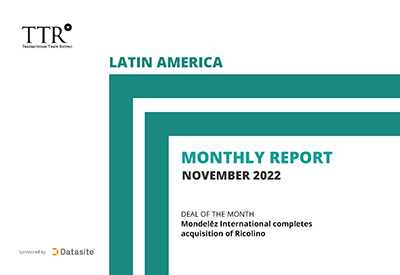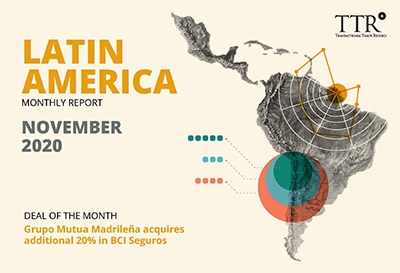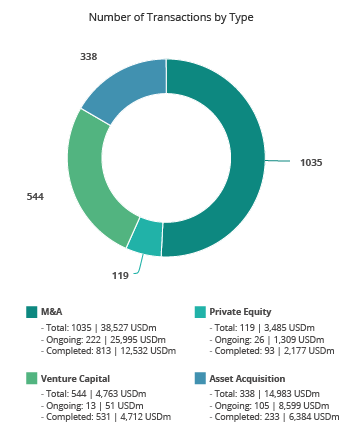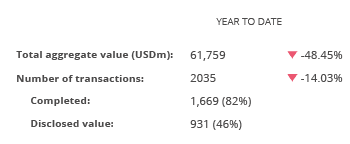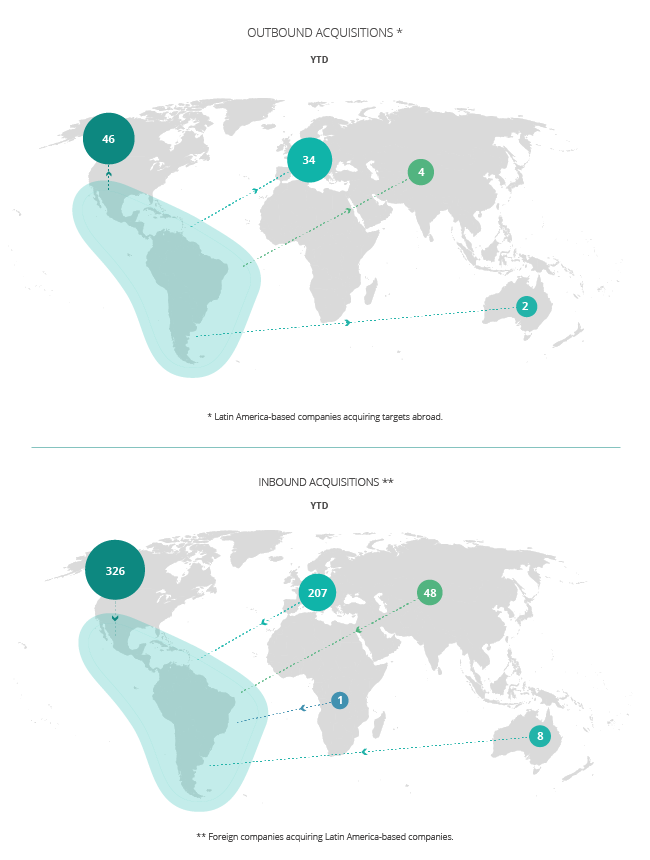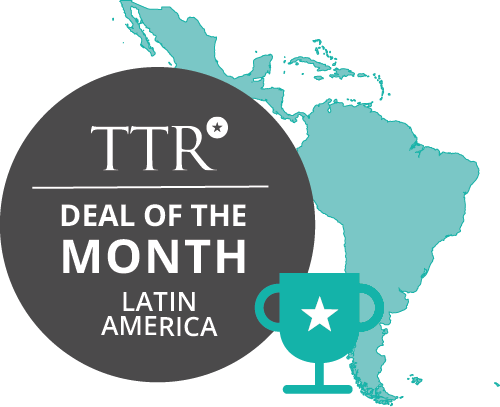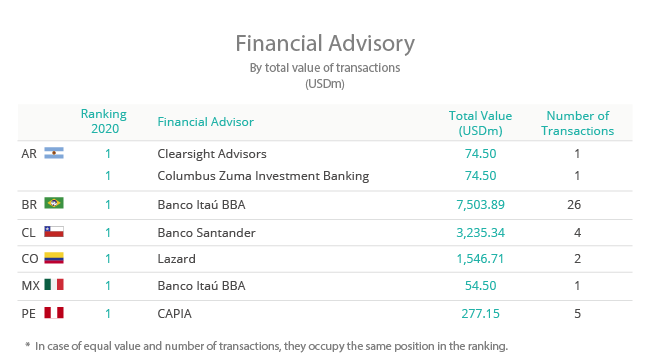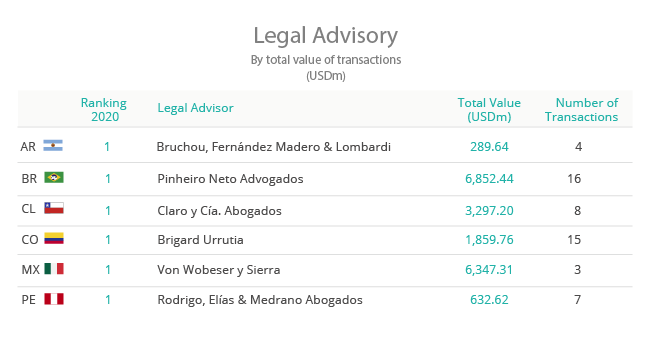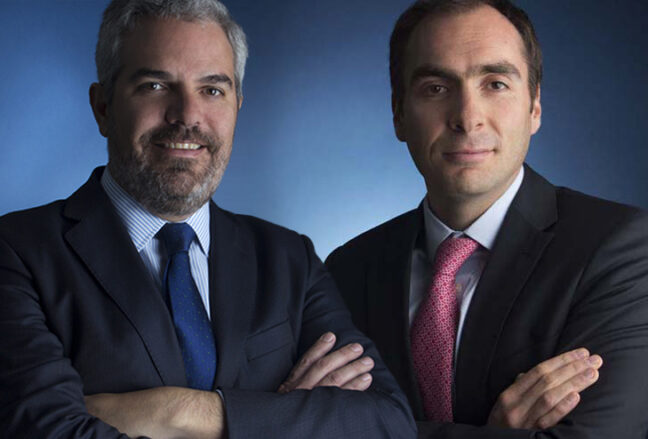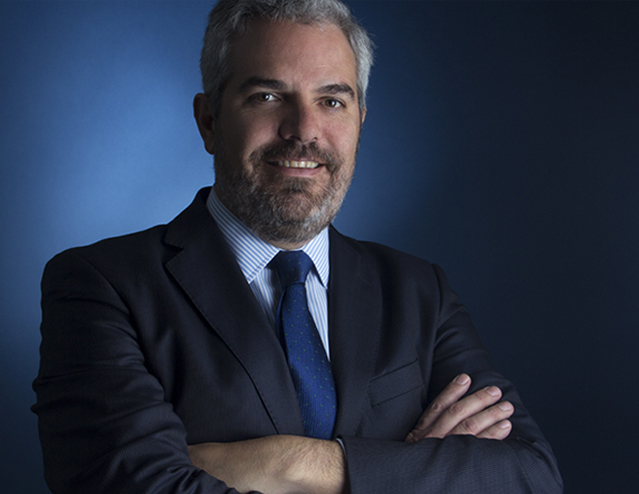Contenido disponible en español e inglés
TTR DealMaker Q&A con Mauricio Saldarriaga, socio director de Inverlink
Mauricio Saldarriaga – Inverlink
Mauricio has more than 20 years of experience in investment banking both in local and international arenas.Prior to joining Inverlink in 2002, Mr. Saldarriaga worked at Salomon Smith Barney in their London and New York offices. He began his career in the Bogotá offices of Deutsche Morgan Grenfell.
Mr. Saldarriaga has executed various transactions of M&A, capital market issuing and project finance for both local and international companies, as well as private equity funds and other institutional investors.
TTR: La actividad de fusiones y adquisiciones en América Latina ha sido volátil a lo largo de 2020: ¿Cómo describiría el panorama de fusiones y adquisiciones en Colombia hoy en día?
M. S.: El mercado transaccional de fusiones y adquisiciones sufrió una disrupción importante a finales de marzo, debido a todo lo que sucedió con la llegada del covid-19. Las consecuencias que en ese momento arrojó la pandemia y que eran impredecibles, hicieron que muchos inversionistas o vendedores pusieran en pausa muchas de sus decisiones de inversión o desinversión. La Pandemia afectó sin duda las perspectivas futuras de la gran mayoría de las industrias y esa falta de visibilidad, hizo que muchos inversionistas no estuvieran en condiciones de firmar un cheque importante y dieron prioridad a atajar los problemas, mitigar los impactos en sus negocios principales y a poner en pausa sus decisiones de crecimiento inorgánico y de adquisiciones.
La pandemia sí generó un impacto importante, pero una vez se asimiló ese primer golpe, ha venido surgiendo un flujo de operaciones como consecuencia de la necesidad de vender y de otorgarle a sus compañías una estabilidad en su estructura de capital. Las fusiones y adquisiciones han estado más concentradas en sectores más defensivos como es el caso de energía, infraestructura, alimentos, consumo masivo y aseo, (que se han defendido bastante bien con el tema de la pandemia).
Por otro lado, existen sectores tremendamente afectados, como es el caso de las aerolíneas, los restaurantes y el sector hotelero para citar solo algunos, en donde se encuentran en condiciones muy inciertas, debido a la gran disrupción que han experimentado sus negocios y la gran dificultad asociada a estimar el valor comercial de un activo o de una compañía. Cuando se miran los niveles de actividad de fusiones y adquisiciones en toda Latinoamérica, el volumen transaccional ha caído de manera muy importante. 2020 y 2021 sin lugar a duda, serán años de reacomodamiento y de reestructuraciones financieras.
TTR: ¿Cómo ha manejado Inverlink este periodo de crisis en términos de asesoramiento y qué oportunidades han encontrado en medio de la incertidumbre?
M. S.: Ha sido un gran reto sin duda por la complejidad de la situación y las condiciones generales del entorno. Creo que nos ha exigido muchísima creatividad y nos hemos adaptado muy bien al trabajo remoto desde casa. De igual forma, con las herramientas que tenemos actualmente, tanto a nivel interno como con nuestros clientes, hemos logrado tener un dialogo fluido, una coordinación y una buena efectividad en la ejecución de los procesos que se vienen adelantando.
Las circunstancias actuales nos exige a todos ser más eficientes, más productivos y más selectivos que nunca. Además, ha sido una gran oportunidad, ya que mantener la dinámica de trabajo en equipo, conservar la mentalidad positiva y encontrar oportunidades más allá de la crisis, ha sido clave. Hoy en día tenemos un pipeline de negocios tan robusto como el que teníamos a principios de año, a pesar de que muchas de las transacciones que veníamos trabajando a comienzos de año sufrieron algún nivel de disrupción y algunas de ellas se abortaron o se quedaron en stand by.
Hemos tenido la capacidad de sobreponernos e igualmente anunciamos una alianza estratégica con UBS, un banco global que nos permite combinar nuestro conocimiento y competencias locales, junto a nuestros más de 35 años en el mercado, con la fortaleza de una plataforma global como la de UBS que tiene productos muchos más amplios y un alcance más internacional. Estamos muy optimistas de lo que podemos lograr juntos a través de esta alianza.
A nivel local, fuimos los asesores financieros exclusivos de EPM, en la adquisición de CaribeMar, conocida ahora como Afinia, la cual prestará el servicio de energía a 1,5 millones de colombianos. En Inverlink, nos llena de orgullo haber acompañado y apoyado a EPM en esta transacción y contribuir con nuestro profesionalismo para alcanzar una solución a largo plazo a la problemática asociada a la calidad y confiabilidad del servicio de energía eléctrica en el país y la región Caribe en particular, siendo esta fundamental para la competitividad de Colombia.
TTR: ¿Cuáles son las expectativas de Inverlink en el mercado de M&A, tanto en Colombia como en América Latina, con el reciente acuerdo con UBS?
M. S.: La alianza estratégica con UBS nos permite jugar en una liga distinta, estar muy activos en los grandes negocios con los grandes corporativos y en importantes transacciones a nivel mundial. Además, nos ha permitido tener una mayor cercanía a los grandes jugadores internacionales con lo que ello implica y creo que nos ilusiona ser protagonistas y ser una plataforma líder en banca de inversión en el país. Estamos convencidos que es una oferta de valor diferenciada que combina la potencial global de UBS con el conocimiento local de INVERLINK al servicio de las compañías y los inversionistas en Colombia.
TTR: ¿Cómo luce el panorama de M&A en Colombia y América Latina para el 4Q20 y 1Q21?, ¿Cuáles sectores atraerán más inversión?
M. S.: Estamos atravesando un momento de incertidumbre y aún no existe una claridad sobre la duración de esta pandemia y sus efectos. De manera que probablemente el primer trimestre o semestre del año entrante vamos a tener que seguir conviviendo con esa incertidumbre asociada a la pandemia y eso definitivamente va a ralentizar un poco el tema de los negocios y las transacciones. De igual forma, va a dificultar un poco el hecho de ponerse de acuerdo en el valor o el precio de un activo que quiera cambiar de manos y transarse. Sin embargo, observamos que aún hay muchísima liquidez en el mercado y el crecimiento en el mundo a nivel global es escaso. Oportunidades de inversión no hay tantas, y en ese sentido, Colombia, a pesar de tener una afectación importante, ofrece condiciones atractivas y oportunidades de crecimiento interesantes
El mercado colombiano cuenta con un tamaño relevante con 50 millones de habitantes, el cual gracias a su institucionalidad y a su crecimiento en sectores como el de la energía, la infraestructura, el consumo masivo, los alimentos y el agro, genera una dinámica interesante.
Hemos estado trabajando durante los últimos años en Centroamérica y el Caribe, observando una mayor interacción regional. A la fecha, Inverlink ha logrado cerrar transacciones en cerca de 10 países de América Latina, desde México hasta Argentina, de manera que hemos ido enfocándonos no solo en Colombia, sino en una huella mucho más regional lo cual nos da una mayor diversificación y un panorama de acción más amplio al servicio de nuestros clientes.
TTR: ¿Qué medidas regulatorias ayudarían a que el mercado colombiano de fusiones y adquisiciones se recupere más rápidamente?
M. S.: Creo que el problema fundamental no pasa por la regulación. Es más un tema de condiciones de mercado, que exista más claridad de lo que pasará con la pandemia, que exista mas visibilidad sobre la duración y el impacto de la misma.
Se han planteado muchísimos retos en cuanto al impacto a la macroeconomía del país, si se mantendrá la calificación de riesgo soberanao no, qué pasará con el empleo, qué pasará con el consumo. Y eso de alguna manera hace que poco a poco se vayan dando las condiciones para que las transacciones de compra venta de compañías, fusiones, etc, puedan avanzar y vuelvan a un flujo más normal.
Ahora bien, creo que es fundamental que el país aborde las discusiones difíciles de reformas estructurales como una nueva reforma tributaria, una flexibilización del régimen laboral que nos permita ser más competitivos y una reforma al régimen de pensiones entre otros.
Por último, veo una dinámica bien interesante en el ecosistema de emprendimiento en el país. Muchas nuevas empresas, dinámicas e innovadoras, con modelos de negocio disruptivos, de base tecnológica están cambiando la dinámica competitiva de muchas industrias como la movilidad, el comercio, servicios financieros, la educación, la salud, energía, etc. Estoy convencido que Colombia tiene un inmenso potencial con sus emprendedores jóvenes y la pandemia ha generado una aceleración muy grande en la adopción tecnológica y los cambios de hábitos en las personas que esto conlleva. Hay una gran oportunidad en este proceso de recuperación y reinvención que vamos a ver en los próximos años.
Versión en inglés
TTR: M&A activity in Latin America has been highly volatile throughout 2020: How would you describe the current M&A market in Colombia?
M. S.: The M&A market suffered a major disruption at the end of March, due to everything that happened since the arrival of covid-19. The consequences of the pandemic at that time, which were unpredictable, caused many investors or sellers to put most of their trading decisions on hold. This affected the future prospects of the vast majority of industries and this lack of visibility meant that most people were not in a position to sign a major check and preferred to focus on tackling the problems in their core businesses, putting all their inorganic growth and acquisition decisions on pause.
The pandemic did have a major impact, but once that first blow was absorbed, a deal flow emerged as a result of the need to sell and to give their companies stability in their capital structure. M&A has been more concentrated in more defensive sectors such as energy, infrastructure, food, mass consumption and sanitation, which have done quite well dealing with the pandemic. While there are sectors tremendously affected, as is the case of restaurants and the hotel sector, where conditions are very uncertain, due to the difficulty they present to close transactions or think about the commercial value or assets of a company. When you look at the levels of M&A activity throughout Latin America, the transaction volume has fallen significantly. 2020 will undoubtedly be a year of readjustment and forward financial restructuring and renegotiation of liabilities and debts.
TTR: How has Inverlink responded to the crisis in terms of the advisory services you provide and what opportunities have you found in recent months amid all the uncertainty?
M. S.: I do believe that it has demanded a lot of creativity from us, we have adapted very well to working remotely from home. Furthermore, with the tools that we currently have, both internally and with our clients, we have managed to have a fluid dialogue, coordination and constant execution of the processes that we have been carrying out. It requires us all to be more efficient, more productive, more selective than ever. Moreover, it has been a great opportunity, since maintaining the teamwork dynamic, keeping the positive mentality and finding opportunities beyond the crisis, has been key.
Nowadays we have a business line pack as robust as the one we had at the beginning of the year, despite the fact that many of the transactions we had been working on suffered some level of disruption and some of them were left on standby.
We have found the ability to overcome the crisis, and also announced a strategic alliance with UBS, a global bank that allows us to combine our local knowledge and skills, along with our more than 35 years of experience on the market, with the strength of a global platform like UBS that has much broader products and a wider international reach.
Locally, we were EPM’s exclusive financial advisor in the acquisition of CaribeMar, now known as Afinia, which will provide energy services to 1.5 million Colombians. In Inverlink, we are proud to have accompanied and supported EPM in this transaction and to contribute with our professionalism in reaching a long-term solution to the problems associated with the electrical energy service in the country.
TTR: What’s Inverlink’s outlook for the M&A market in Colombia and across Latin America in light of the recent agreement with UBS?
M. S.: The strategic alliance with UBS allows us to play in a different league, to be highly active in big business and big transactions worldwide, from the hundreds of millions of dollars up. In fact, it has allowed us to be close to the great international players, with all that this implies; I believe that we are excited to be protagonists and a leading platform for investment banking in the country.
TTR: What is your M&A forecast for Colombia and Latin America for 4Q20 and 1Q21?, Which sectors will attract most investment?
M. S.: We are still going through a moment of uncertainty and there is still no clarity about the duration of this pandemic and its effects. So probably during the first quarter of next year we are going to have to continue to live with that uncertainty associated with the pandemic; and that is definitely going to slow down a little bit the business and the transactional issue. Similarly, it is going to make it a little more difficult to agree on the value or price of an asset that wants to change hands and be traced. However, we observe that there is still a lot of liquidity in the market and growth in the world at a global level is limited. There are not so many investment opportunities, and in that sense, Colombia, despite having a significant impact, offers interesting growth opportunities.
The Colombian market has a relevant size with around 50 million inhabitants, therefore, it offers favorable conditions in the region, due to its institutionality and the growth it has in sectors such as energy, infrastructure, mass consumption, food and sanitation, which generates an interesting dynamic for the investors and sellers.
We have been working across Central America and the Caribbean, observing greater regional interaction. Inverlink has managed to close transactions in about 10 countries in Latin America, from Mexico to Argentina, so we have been focusing not only on Colombia, but on a much broader footprint.
TTR: Which regulatory measures could help the Colombian M&A market recover more quickly?
M. S.: I do not think the problem is about regulation. The regulation that exists is good and it works. It is more a question of market conditions, having more clarity about what will happen with the pandemic, having more visibility about the duration and impact of the pandemic.
There have been many challenges in terms of the impact on the country’s macroeconomy, whether the sovereign risk rating will be maintained or not, what will happen to employment, what will happen to consumption. And that somehow makes it possible, gradually, to create the conditions for buying and selling companies, mergers, etc., to move forward and return to a more normal deal flow.
